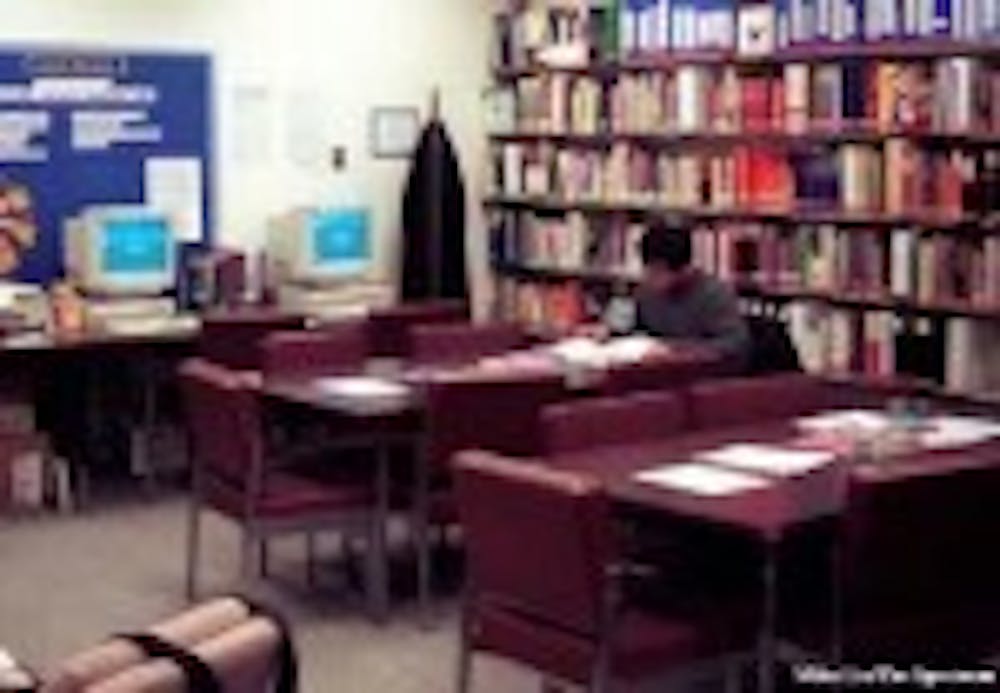Graduation is rapidly approaching, but that may be as close as some students come to certainty in the future. A tight job market and a depressed economy can contribute to making the near future a nerve-wracking thing.
Meg Massalone, a senior theater major, said she is nervous about walking across the Alumni Arena stage.
"I'm scared to death because my (field) has less job security," said Massalone.
With the semester nearing its end, Massalone is not enthusiastic about leaving the familiarity of her life at UB. "I don't want to leave it and have to create a whole new life," she said.
Even with her nerves on edge, Massalone, who hopes to enjoy a career as a performer in New York City, is led by a question that will have a big impact on the success of her efforts.
"There's, like, 1,000 of me," Massalone said. "How can I make (prospective employers) realize I'm the one that they want?"
At her position as Director of Student Support Services, Leasa Rochester said she sees students feeling the squeeze of starting a career or working toward either a master's degree or a doctorate.
"Most students who decide on graduate school are physically prepared to start, but not necessarily mentally prepared," said Rochester.
According to Rochester, graduates hoping to break into the job market after their undergraduate degree tend to be more anxious about their prospects.
"I've never seen one person who is completely confident about the next step," she said.
Rochester said many of the students she counsels make their situations worse by lengthy periods of indecision and an inability to focus on the field they truly want to pursue.
By obtaining internships and building relationships with advisors, professors and professionals, Rochester said students could qualify for better opportunities in the job market.
Rochester said she also encourages students to take the time to find a niche in which they feel comfortable and then make connections with others with similar interests.
"Students often don't take advantage because they are too terrified to talk to their professors," she said.
Robert Orrange, associate director for Career Planning and Placement, said he encourages students to get an early start on planning for life after graduation and that UB's career services is a great place to start.
"There's always room for more students, and they might as well take advantage of it because it's all free," said Orrange.
Orrange said he finds that students who use career services generally have less anxiety than those who wait until senior year to sort out their options because students that plan ahead are more secure in their choices and are better equipped to begin working in their field.
"In the junior year, students should be thinking about internships, and seniors should be looking at the beginning of the year for jobs," said Orrange.
As reassuring as a head start may seem, many students are still struggling to figure out where to go and what to do after graduation.
Lily Lieu, a senior communication major, said she not only worries about finding a job, but also whether she will enjoy it.
"People get so bored with their jobs that they just go home or end up at a bar," Lieu said. "It's more fun in school."
Even after selecting a career path, the options in any area of interest can be overwhelming. Tanya Heferts, a junior speech and hearing science major, is certain of her field, but she empathizes with those who are not.
"There's so many (decisions) that are critical at this point in your life and not having the road paved out," Heferts said. "It's stressful."
Brian Waldrop, a student advisor in the College of Arts and Sciences, said he encourages students to examine themselves closely to decide the best career route to take. Waldrop advises a wide range of students, from computer science to women's studies majors, and he pointed to the flexibility of many degrees in the job market.
"I try to get them to think about what they really like," Waldrop said. "That's what is really important."
Waldrop said students should not only focus on enjoyment, but also find a passion for what they do.
"If students don't feel like what they are doing is important, it becomes tedious," he said.
Waldrop himself earned a doctorate in neuroscience but changed his mind and became an advisor because he enjoyed helping students plan for their futures. He warned against feeling pigeonholed and said he urges students to take risks, whether it is a leap into another field or just an exploration.
"There are lots of things to learn in college outside of academics. Students need to learn how to take chances," Waldrop said. "Sometime you just need to close your eyes and jump."





